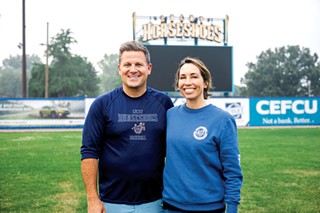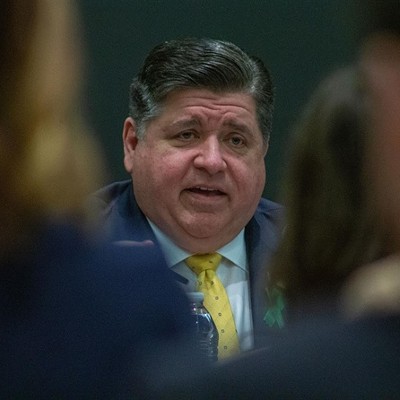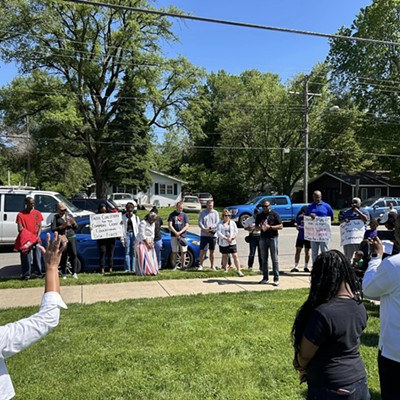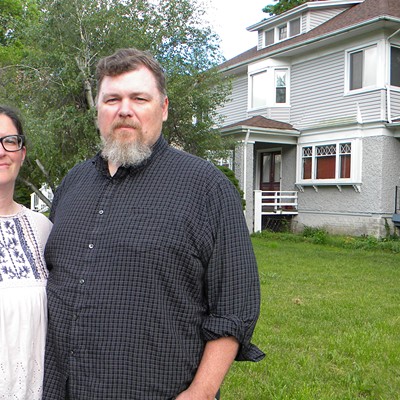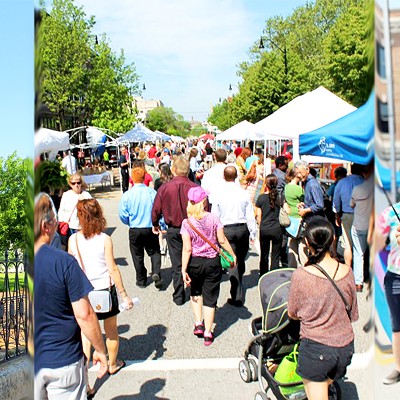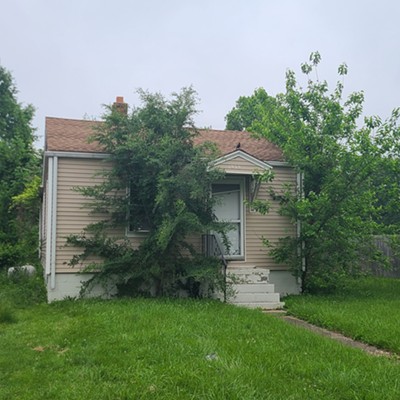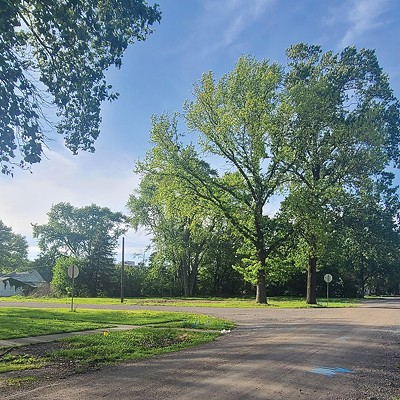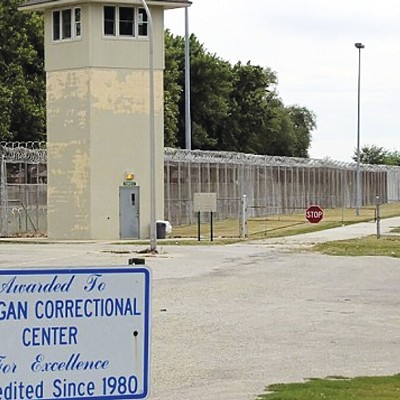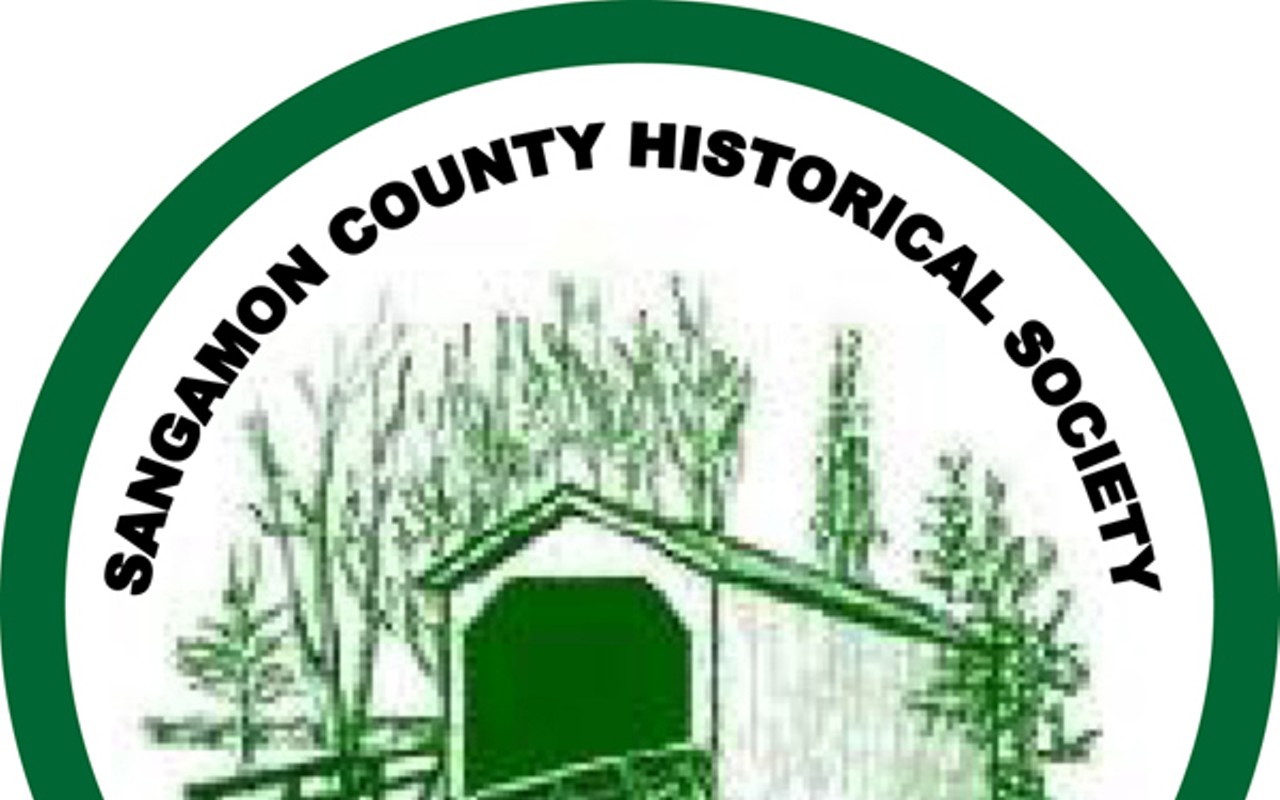The crack of a bat, the cheer of a crowd and smiles exchanged between a grandparent and child weave a tapestry of memories on Springfield's north end.
But that tapestry is getting frayed and the future of Robin Roberts Stadium is being pondered. Is it a valued amenity or white elephant?
Last year, the Lucky Horseshoes became the latest team to make the 98-year-old stadium home.
"Some of the best college players in the nation play here, but this facility doesn't always present Springfield in the best light," said Jamie Toole, who along with his wife, Melissa Gaynor, are managers and partial owners of the team.
The 5,200-seat stadium is owned by the Springfield Park District, but the Horseshoes are the sole tenant. Park District Executive Director Derek Harms said during the fiscal year that ended in April the district spent $320,000 on the stadium and collected $24,000 in rent.
"We are in year two of a five-year lease with the Horseshoes. And we hope to continue working with them and keep them here as long as we can," said Kris Theilen, a Park District board member and former alderman. "However, the Park District has a lot of property and things that we have commitments to. There isn't anything at the Park District that doesn't receive some kind of subsidy.
"Nothing brings in enough revenue on its own. Not the Nelson Center pool, none of the golf courses – none of it. So, all of it gets subsidized at one point or another. The Park District really just doesn't have the ability to sink millions of dollars into Robin Roberts Stadium right now."
But Toole says the facility is in desperate need of upgrades if it is to succeed as a sporting and entertainment venue. He notes it remains a money-losing proposition for the group of investors who own the Horseshoes.
Toole said last year the ownership group spent $925,000 and brought in $750,000 in revenue. He noted they employ four full-time employees, including him and his wife, and another 25 seasonal workers are paid by the team.
Toole added that last year the team had several one-time start-up expenses such as spending $340,000 on a new scoreboard and installing new carpeting in the team's offices and locker rooms.
As Toole and Gaynor stroll through the facility, they point to a multitude of things that they have asked their landlord to fix.
"Do you see that toilet? It hasn't worked for a year," Toole proclaimed as he walked through a public restroom. "We keep asking the Park District to fix it, and they keep putting us off. It's ridiculous."
He said the park board won't allow them to hire a private plumber to fix the problem, instead insisting that the work be done by a Park District employee who is represented by a union.
After waiting more than a year, his frustration is palpable.
The stopped-up toilet has become emblematic of broader concerns facing the historic arena.
As Toole walked by the protective netting that separates spectators and players, he shoved a hand against the flaccid webbing. It stretched to his arm's length.
"This is a danger. If a ball were to hit it, it could hurt someone standing behind it. At a game, I saw a child pushing up against it and a parent or grandparent pulling them back when they realized they could get hurt."
Toole said the Park District has committed to replacing the netting but it is far behind schedule. And the hazard has persisted through the current baseball season.
A nearby sign warns patrons to be aware of errant balls and shattered bats that could fly into the stands.
A walk across the field exposes other safety concerns.
"Look at this," Toole said as he stuck the toe of his sneaker into the pea gravel that composes the track, which laps the field.
"This gravel is so loose that if a player were to step into it, he could break an ankle," he said as the edge of his shoe delved into the pile of gravel.
A few feet away sits a mystery: water that pools on the field no matter the weather.
"Here we are in the middle of a drought, and we have no idea where this water is coming from," Toole said, days before Springfield's derecho. A portion of left field has become marshy, perhaps from a leaking underground water main.
Toole said they have complained of the problem for months and still there has been no follow through by the Park District staff.
He points toward a speaker hanging above the bleachers and said it no longer functions but, as with many of their complaints, the Park District has not responded.
The ceiling of one of the concession stands collapsed. The Park District responded by shutting down the stand rather than repairing it, Toole said. The decision means longer lines at the other stands, less revenue for the venue and a facility that continues to deteriorate, he said.
That's not to say the Park District hasn't made infrastructure investments.
For example, last year hot water was added to the locker rooms, allowing athletes to have warm showers for the first time in nearly a century. Other locker room improvements are slower in coming, such as adding doors to the toilet stalls.
But the desired infrastructure improvements that loom largest pertain to parking. The 5,200-seat arena has about 100 parking spaces. The venue has been able to mitigate the shortage by working with the state of Illinois to use the nearby Environmental Protection Agency lot. And when ongoing construction ends at neighboring Lanphier High School, more parking spaces will open up.
Still, the Horseshoes are lobbying hard for the Park District's neighboring tennis courts to be converted into parking spaces.
"I have not seen anyone playing tennis on those courts for a year," Toole said.
Park District Board President Leslie Sgro said the board is open to converting the tennis courts.
"Theoretically, I don't have a problem with that," she said. "But we need a curb cut from the city in order to make that happen. Otherwise, they will have to have people drive across our brand-new basketball courts that we put in there.
"We have an engineer right now looking into that. ... If we get the curb cut from the city, the city's going to ask us for the engineering on the tennis court. So, we've hired an engineer to go out and take a look to see how many cars can be on it. ... I don't think that there's an appreciation that there are hoops we have to jump through."
And there is the rub; bureaucratic hurdles are a normal part of doing business with any governmental entity. That's one reason the Horseshoes are proposing another solution: divorce.
Toole said the Horseshoes are committed to remaining in Springfield, but he has come to believe the solution may be for the Park District to cede ownership of the stadium to a private foundation controlled by the team.
This month, the team formed Friends of Robins Roberts Stadium, a 501(c)3 charitable foundation dedicated to the revitalization and sustainability of the historic stadium.
Sgro said she is not necessarily opposed to such an arrangement but noted such a transaction may be difficult, if not impossible, to accomplish under Illinois law.
Director Harms said that while Illinois law allows park districts to transfer property to another governmental entity, in order for it to be transferred outside the public sector it would need to be declared to be "no longer of recreational value."
"I don't think we could do that, because quite obviously, the stadium is being used right now," Harms said.
While current state law would appear to bar such a move, the Park District would certainly be open to discussing introduction of special legislation allowing such a transfer to take place, Harms said.
"We are not actively trying to get rid of the stadium, but we are open to discussions with the Horseshoes," he said.
Park Board member Theilen said the legal barriers are far too great for such a transfer to ever happen. But, he added, a private foundation does hold promise in raising funds to improve the stadium.
"A lot of the places the Park District does its most amazing work is with fundraising groups such as the Zoological Society or the Carillon Society that partner with the Park District on specific things. The Botanical Garden has a foundation; there is a Parks Foundation, too. These different subgroups do fundraising. That's how we pay for a lot of the things. They either go half and half with us, or in some cases pay for the whole thing, because they raise the money for it. And it's amazing that we haven't had someone put together a fundraising group for Robin Roberts Stadium before now. ... It would greatly assist the Park District in the ability to make those upgrades or improvements. Right now, we just don't have that money."
Paul O'Shea, a retired architect and amateur local baseball historian, says he believes the Springfield community could rise to the challenge and raise sufficient funds to restore the stadium to its past grandeur.
"Jamie and Melissa are not only doing a good job bringing good baseball but also good entertainment to the community," he said.
O'Shea added he began playing at Robin Roberts more than 70 years ago. It's the history of the stadium that binds it to the hearts of many in Springfield.
"It's got a lot of warmth to it, as opposed to just a new concrete and steel facility," he said. "The wood has a nice warm feel to it, as opposed to a cold, sterile type of an interior. It's not like there's a lot of interior space, but it's got a good feel."
Scott Reeder, a staff writer for Illinois Times, can be reached at [email protected].

